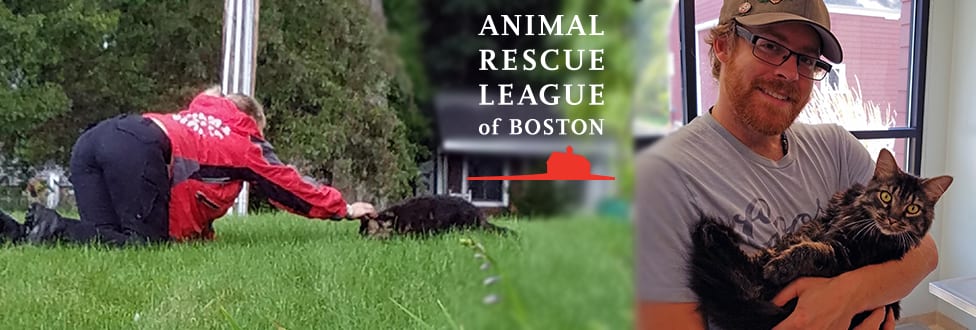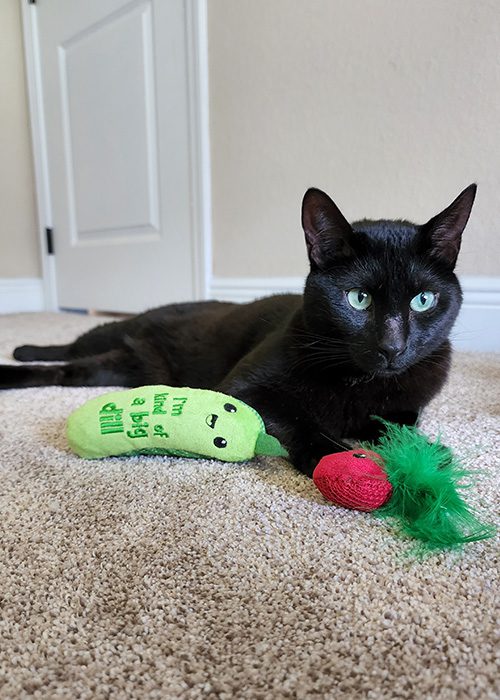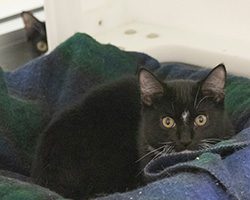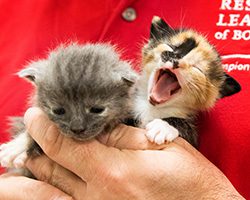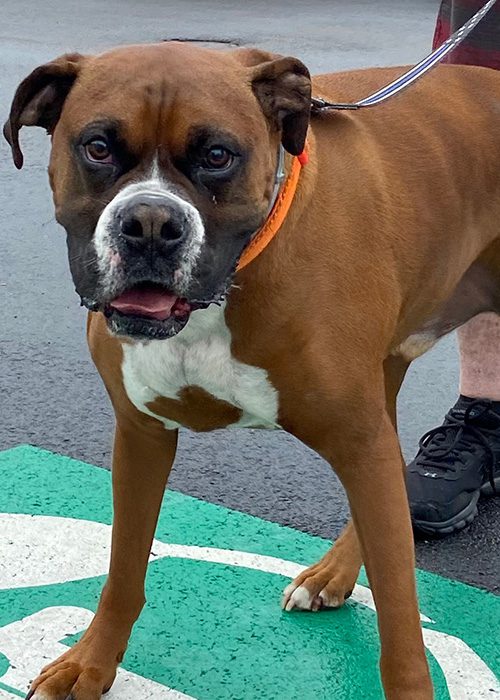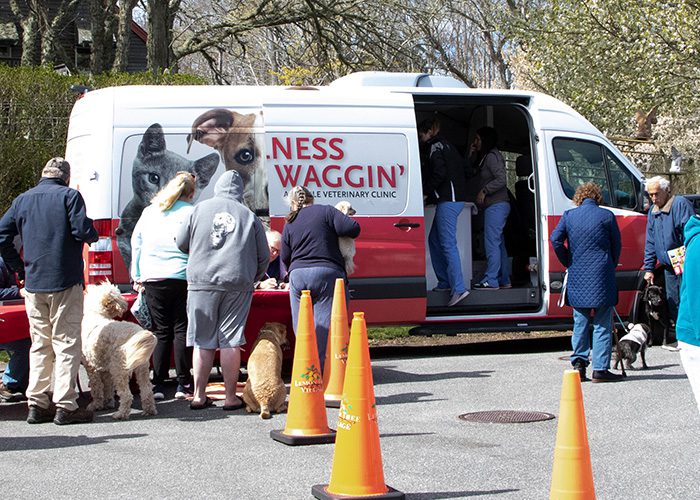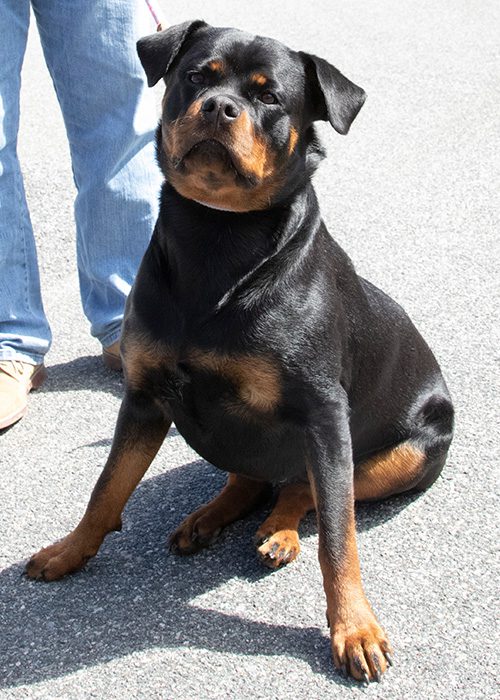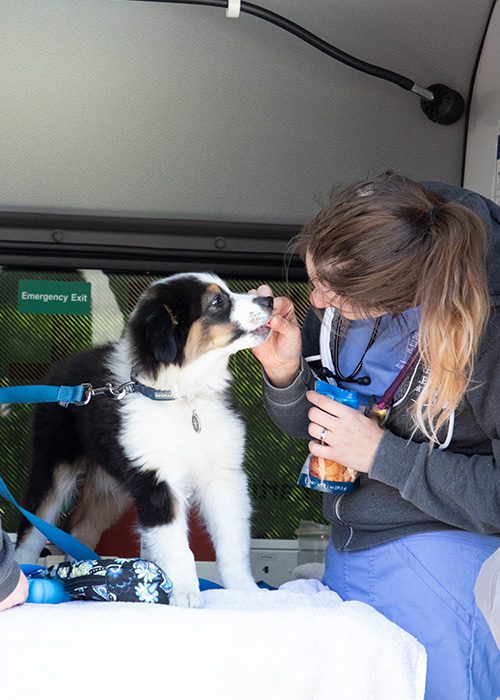ARL Shelter Medicine Team Prepares Pup for New Home
Shelter Medicine team helps “Ginger” improve quality of life
One of the critical components to preparing an animal for adoption at the Animal Rescue League of Boston (ARL) is its shelter medicine team.
ARL veterinarians cover a wide array of services from general wellness exams to complex surgical procedures.
When Ginger, a nine-year-old Pitbull-type dog, came to ARL’s Boston Animal Care and Adoption Center recently via Athol Animal Control, it was clear this sweet pup would need a number of veterinary services before being made available for adoption.
High-Quality Veterinary Care
Ginger’s previous veterinary records indicated chronic lameness in her right hind leg, which was confirmed upon intake and exam.
The leg was clearly causing Ginger discomfort, and along with her lameness, ARL’s shelter medicine team also detected a mammary mass, which would need to be removed surgically.
To relieve the discomfort and to give Ginger a better quality of life, her hind limb was removed, and during this surgical procedure, the mass was also removed. Ginger also needed to be spayed.
Following surgery, Ginger healed rather quickly and with her leg no longer causing her pain and discomfort, her energy and demeanor drastically improved!
Going Home
Ginger adjusted very quickly, showing staff and volunteers her ability to tackle stairs with ease and showing off her sweet disposition.
She soon was adopted, finding her perfect home where she has plenty of space to play, be loved and do what she loves most – nap!
ARL Shelter Medicine
All animals who come to ARL receive veterinary exams, vaccines, are spayed/neutered, and microchipped by ARL’s shelter medicine team.
ARL also has the capability to handle a wide variety of surgical procedures to ensure that our animals are healthy, happy, and thriving.






